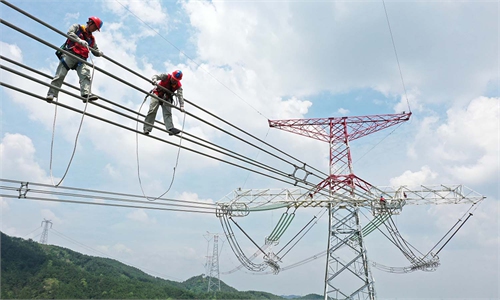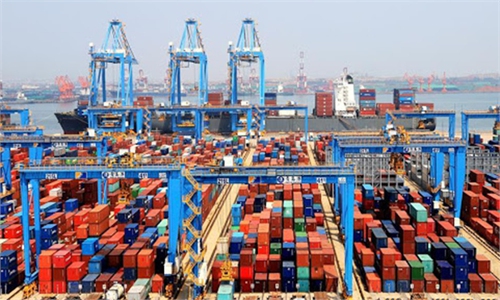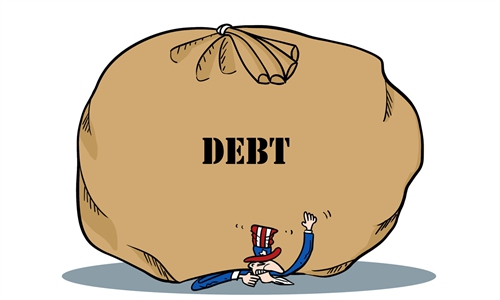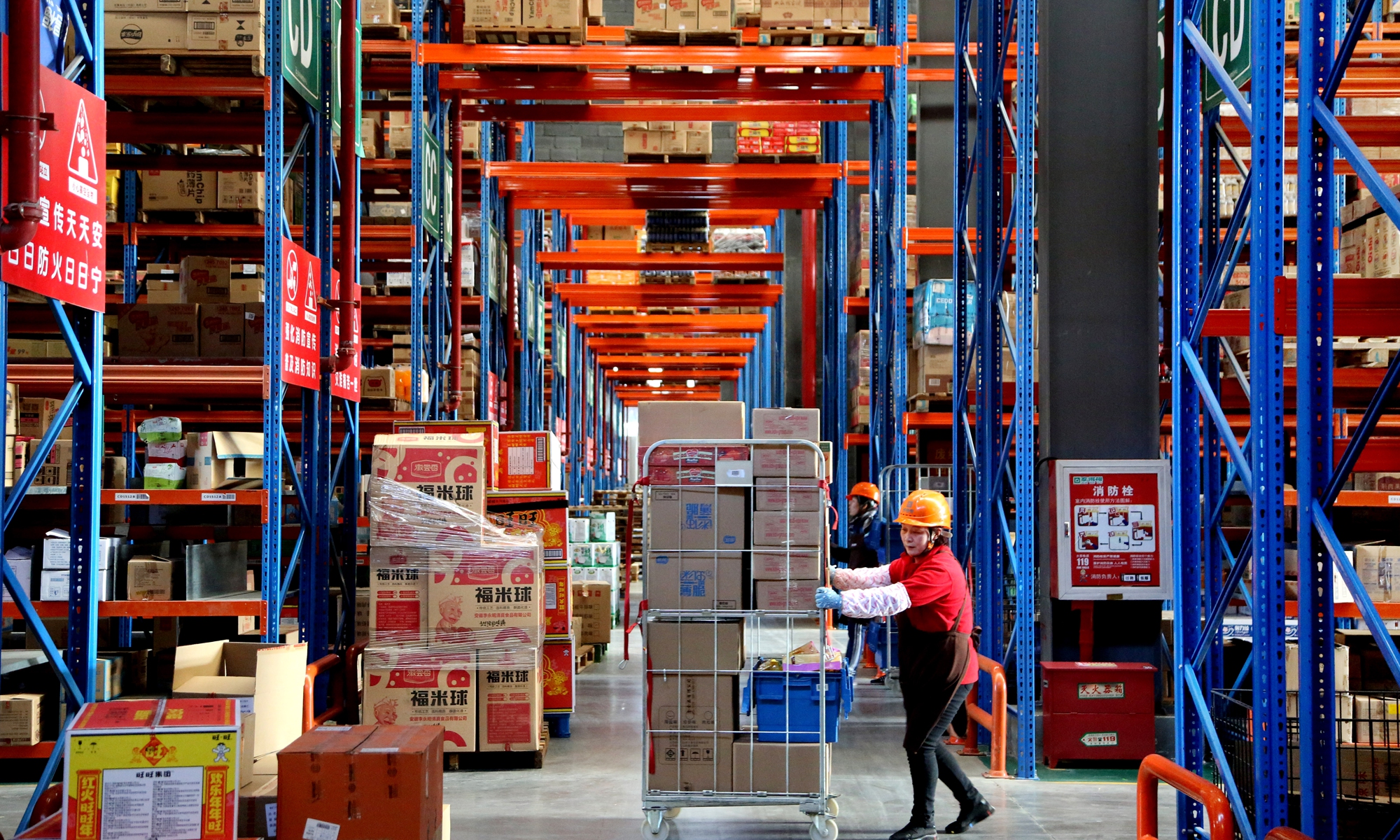
A worker arranges goods at a warehouse of an e-commerce platform at Lianyungang, East China's Jiangsu Province on Tuesday. Online retailers have been working day and night to prepare for the upcoming Double 12 shopping festival. Photo: CNSphoto
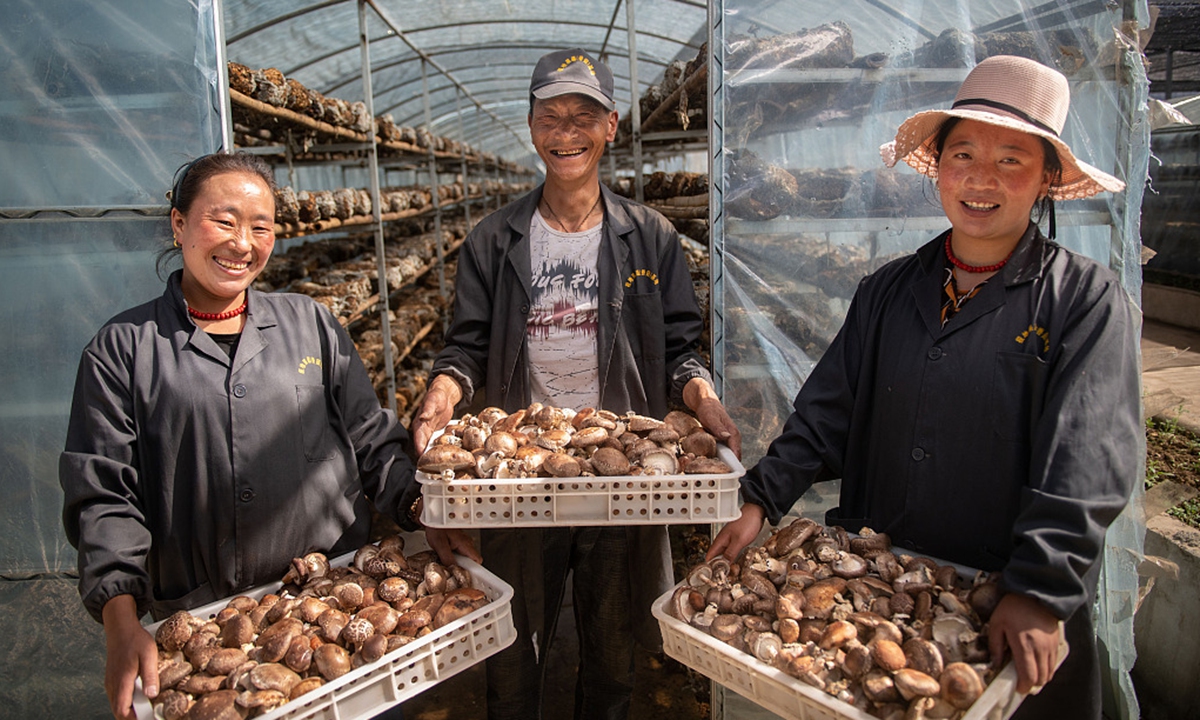
poverty alleviation Photo:VCG
The International Monetary Fund (IMF) on Tuesday lowered its 2021 global growth forecast to 5.9 percent, down from the 6 percent it projected in July. The change mainly applied to major developed countries. The IMF cut its growth estimates for the US this year by 1 percentage point to 6 percent. The growth outlook for Germany, the UK and Japan were cut by 0.5, 0.2 and 0.4 percentage points, respectively. The IMF also downgraded China's growth from 8.1 percent to 8 percent.
The momentum of the global economic recovery has been weakened by the disorder in the global supply chain and the continuing effect of the COVID-19 pandemic. Western countries such as the US have cautioned the public to prepare for "empty shelves" with the upcoming Charismas season.
The two problems are also affecting China. China faces a debt default represented by Chinese real estate giant Evergrande and a sluggish property market. The shortage of electricity also overshadows the Chinese economy.
The IMF's lowering of China's expected growth is small, reflecting the outside world's trust in China's macro-regulation ability. On Wednesday, China released its September trade data, which is robust. Also in September, China faced a slew of issues, including the sporadic COVID-19 infections, electricity shortage and the Evergrande case, which squeezed the room for economic development. These problems are real, and may have a lingering effect on the economy. We shouldn't be blindly optimistic.
Economic recovery is now the main battlefield of international competition. However, whether each major power likes it or not, economic recovery will be politicized in different ways. China and the US have taken completely different epidemic prevention approaches and the two countries are in a fierce political game. China has overcome the difficulties of economic recovery more effectively, so it will generate more comprehensive confidence. This confidence will also be transformed into a powerful foundation for China to resist US' censure.
Supply chain disruptions are spreading. The US was the first to proactively disrupt some of its key supply chains with China, but Washington was not prepared for the "flood" of COVID-19 that followed. It is uncertain how long the supply chain will remain in turmoil. US' negotiating environment with its allies is also altering on whether it should try to "save" the supply chain or it should continue to develop key supply chains that exclude China.
Yet it should be pointed out that China has proven to be one of the most resilient and self-regulated countries in a world in the supply chain turmoil. China's manufacturing industry, with its huge scale and most complete categories in the world, has played a comprehensive role. The US and Western countries are dependent on Chinese products in many areas, and it has been verified that it is difficult to implement an alternative strategy. Under the pressure of American businesses, it can be said that the Biden administration is forced to establish an exclusion mechanism for additional tariffs on Chinese products and proposed the "recoupling" between China and the US.
China's economic strategic situation is sound, and its advantages are constantly revealed. However, a large number of specific problems have come to light, and we need to mobilize our institutional capacity to solve these problems so that the country can move forward in the extremely complex environment.
We should speed up to alleviate the power shortage. Power shortage shows that the demand side of the economy is vigorous and also contains positive elements. Regarding electricity, from coal to electricity prices, to their imbalance, and to the reasonable distribution of electricity, all are typically within the macro-control scope. The central government needs to carry out regulation based on facts and reality, and should not hesitate to break through restrictions. In this way, a balanced supply of electricity can be realized.
The key to resolving other issues is also to take a practical and realistic approach. There will surely be sporadic COVID-19 cases in some places. If the prevention and control in various regions could be as precise and accurate as in the current Shanghai, the prevention and control efficiency nationwide will be greatly improved and the negative impact on the economy will be further reduced.
China has the ability to further boost its economy. Over the past few years, we have successfully dealt with external suppression, putting the external destruction on the Chinese economy under control. The challenges the Chinese economy is facing are rather internal ones and China has the initiative to tackle these challenges. The country has a firm route and determination to develop its economy well. The people have a strong demand for a better life. As long as all regions do practical jobs and face up to the problems, our comprehensive ability to accelerate economic recovery and development will continue to lead other major economies.
